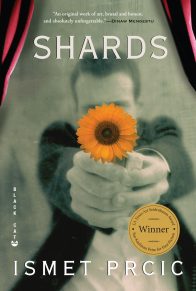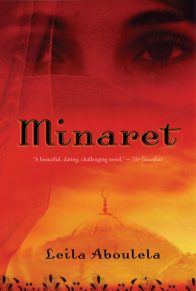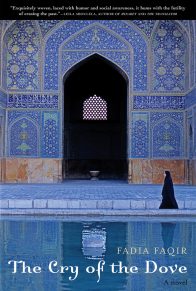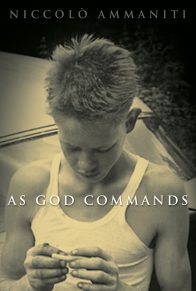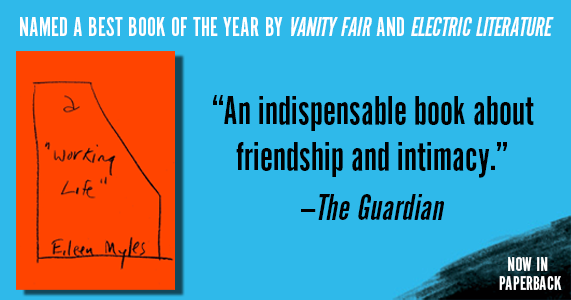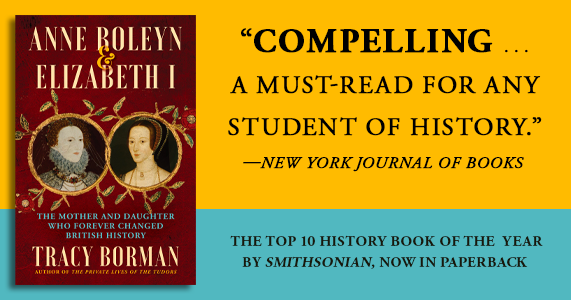I have to try to write a few words to keep some sense in my head and not let my mind break down. I’ll hide my notebook here under the floor so no one will find it, even if they do find me. This is no life for a man to live. People need people, someone to talk to. I try to do a lot of pushups, take care of my body, but I’m not a man anymore—I’m dead. A man should do the work of the household, but in my house a woman does it. It’s shameful.
Liide’s always trying to get closer to me. Why won’t she leave me alone? She smells like onions.
Everything’s balanced on a knife edge—nothing is certain.
Where are my girls, Linda and Ingel? The misery is more than I can bear.
Hans Pekk, son of Eerik, Estonian peasant
1992
Läänemaa, Estonia
The Fly Always Wins
Aliide Truu stared at the fly, and the fly stared back. Its eyes bulged and Aliide felt sick to her stomach. A blowfly. Unusually large, loud, and eager to lay its eggs. It was lying in wait to get into the kitchen, rubbing its wings and feet against the curtain as if preparing to feast. It was after meat, nothing else but meat. The jam and all the other canned goods were safe—but that meat. The kitchen door was closed. The fly was waiting. Waiting for Aliide to tire of chasing it around the room, to give up, open the kitchen door. The flyswatter struck the curtain. The curtain fluttered, the lace flowers crumpled, and carnations flashed outside the window, but the fly got away and was strutting on the window frame, safely above Aliide’s head. Self-control! That’s what Aliide needed now, to keep her hand steady.
The fly had woken her up in the morning by walking across her forehead, as carefree as if she were a highway, contemptuously baiting her. She had pushed aside the covers and hurried to close the door to the kitchen, which the fly hadn’t yet thought to slip through. Stupid fly. Stupid and loathsome.
Aliide’s hand clenched the worn, smooth handle of the flyswatter, and she swung it again. Its cracked leather hit the glass, the glass shook, the curtain clips jangled, and the wool string that held up the curtains sagged behind the valance, but the fly escaped again, mocking her. In spite of the fact that Aliide had been trying for more than an an hour to do away with it, the fly had beaten her in every attack, and now it was flying next to the ceiling with a greasy buzz.
A disgusting blowfly from the sewer drain. She’d get it yet. She would rest a bit, then do away with it and concentrate on listening to the radio and canning. The raspberries were waiting, and the tomatoes—juicy, ripe tomatoes. The harvest had been exceptionally good this year.
Aliide straightened the drapes. The rainy yard was sniveling gray; the limbs of the birch trees trembled wet, leaves flattened by the rain, blades of grass swaying, with drops of water dripping from their tips. And there was something underneath them. A mound of something. Aliide drew away, behind the shelter of the curtain. She peeked out again, pulled the lace curtain in front of her so that she couldn’t be seen from the yard, and held her breath. Her gaze bypassed the fly specks on the glass and focused on the lawn in front of the birch tree that had been split by lightning.
The mound wasn’t moving and there was nothing familiar about it except its size. Her neighbor Aino had once seen a light above the same birch tree when she was on her way to Aliide’s house, and she hadn’t dared come all the way there, instead returning home to call Aliide and ask if everything was all right, if there had been a UFO in Aliide’s yard. Aliide hadn’t noticed anything unusual, but Aino had been sure that the UFOs were in front of Aliide’s house, and at Meelis’s house, too. Meelis had talked about nothing but UFOs after that. The mound looked like it came from this world, however—it was darkened by rain, it fit into the terrain, it was the size of a person. Maybe some drunk from the village had passed out in her yard. But wouldn’t she have heard if someone were making a racket under her window?
Aliide’s ears were still sharp. And she could smell old liquor fumes even through walls. A while ago a bunch of drunks from the next house over had driven out on a tractor with some stolen gasoline, and you couldn’t help but notice the noise. They had driven through her ditch several times and almost taken her fence with them. There was nothing but UFOs, old men, and dim witted hooligans around here anymore. Her neighbor Aino had come to spend the night at her house numerous times when those boys’ goings-on got too crazy. Aino knew that Aliide wasn’t afraid of them—she’d stand up to them if she had to.
Aliide put the flyswatter that her father had made on the table and crept to the kitchen door, took hold of the latch, but then remembered the fly. It was quiet now. It was waiting for Aliide to open the kitchen door. She went back to the window. The mound was still in the yard, in the same position as before. It looked like a person—she could make out the light hair against the grass. Was it even alive? Aliide’s chest tightened; her heart started to thump in its sack. Should she go out to the yard? Or would that be stupid, rash? Was the mound a thief’s trick? No, no, it couldn’t be. She hadn’t been lured to the window, no one had knocked at the front door. If it weren’t for the fly, she wouldn’t even have noticed it before it was gone. But still. The fly was quiet. She listened. The loud hum of the refrigerator blotted out the silence of the barn that seeped through from the other side of the food pantry. She couldn’t hear the familiar buzz.
Maybe the fly had stayed in the other room. Aliide lit the stove, filled the teakettle, and switched on the radio. They were talking about the presidential elections and in a moment would be the more important weather report. Aliide wanted to spend the day inside, but the mound, visible out of the corner of her eye through the kitchen window, disturbed her. It looked the same as it had from the bedroom window, just as much like a person, and it didn’t seem to be going anywhere on its own. Aliide turned off the radio and went back to the window. It was quiet, the way it’s quiet in late summer in a dying Estonian village—a neighbor’s rooster crowed, that was all. The silence had been peculiar that year—expectant, yet at the same time like the aftermath of a storm. There was something similar in the posture of Aliide’s grass, overgrown, sticking to the windowpane. It was wet and mute, placid.
She scratched at her gold tooth, poked at the gap between her teeth with her fingernail—there was something stuck there—and listened, but all she heard was the scrape of her nail against bone, and suddenly she felt it, a shiver up her back. She stopped digging between her teeth and focused on the mound. The specks on the window annoyed her. She wiped at them with a gauze rag, threw the rag in the dishpan, took her coat from the rack and put it on, remembered her handbag on the table and snapped it up, looked around for a good place to hide it, and shoved it in the cupboard with the dishes. On top of the cupboard was a bottle of Finnish deodorant. She hid that away, too, and even put the lid on the sugar bowl, out of which peeped Imperial Leather soap. Only then did she turn the key silently in the lock of the inner door and push it open. She stopped in the entryway, picked up the juniper pitchfork handle that served as a walking stick, but exchanged it for a machine-made city stick, put that down, too, and chose a scythe from among the tools in the entryway. She leaned it against the wall for a moment, smoothed her hair, adjusted a hairpin, tucked her hair neatly behind her ears, took hold of the scythe again, moved the curtain away from the front of the door, turned the latch, and stepped outside.
The mound was lying in the same spot under the birch tree. Aliide moved closer, keeping her eye on the mound but also keeping an eye out for any others. It was a girl. Muddy, ragged, and bedraggled, but a girl nevertheless. A completely unknown girl. A flesh-and blood person, not some omen of the future, sent from heaven. Her red-lacquered fingernails were in shreds. Her eye makeup had run down her cheeks and her curls were half straightened; there were little blobs of hairspray in them, and a few silver willow leaves stuck to them. Her hair was bleached until it was coarse, and had greasy, dark roots. But under the dirt her skin seemed overripe, her cheek white, transparent. Tatters of skin were torn from her dry lower lip, and between them the lip swelled tomato red, unnaturally bright and bloody-looking, making the grime look like a coating, something to be wiped off like the cold, waxy surface of an apple. Purple had collected in the folds of her eyelids, and her black, translucent stockings had runs in them. They didn’t bag at the knees—they were tight-knit, good stockings. Definitely Western. The knit shone in spite of the mud. One shoe had fallen off and lay on the ground. It was a bedroom slipper, worn at the heel, with a flannel lining rubbed to gray pills. The binding along the edge was decorated with dog-eared patent-leather rickrack and a pair of nickel rivets. Aliide had once had a pair just like them. The rickrack had been pink when it was new, and it looked sweet; the lining was soft and pink like the side of a new pig. It was a Soviet slipper. The dress? Western. The tricot was too good to come from over on the other side. You couldn’t get them anywhere but in the West. The last time her daughter Talvi had come back from Finland she had had one like it, with a broad belt. Talvi had said that it was in style, and she certainly knew about fashion. Aino got a similar one from the church care package, although it was no use to her—but after all, it was free. The Finns had enough clothes that they even threw new ones away into the collection bin. The package had also contained a Windbreaker and some T-shirts.
Soon it would be time to pick up another one. But this girl’s dress was really too handsome to be from a care package. And she wasn’t from around here.
There was a flashlight next to her head. And a muddy map.
Her mouth was open, and as she leaned closer, Aliide could see her teeth. They were too white. The gaps between her white teeth formed a line of gray spots.
Her eyes twitched under their lids. Aliide poked the girl with the end of the scythe, but there was no movement. Yoo-hoos didn’t get any flicker from the girl’s eyelids, neither did pinching. Aliide fetched some rainwater from the foot washbasin and sprinkled her with it. The girl curled up in a fetal position and covered her head with her hands. Her mouth opened in a yell, but only a whisper came out:
“No. No water. No more.”
Then her eyes blinked open and she sat bolt upright. Aliide moved away, just to be safe. The girl’s mouth was still open. She stared in Aliide’s direction, but her hysterical gaze didn’t seem to register her. It didn’t register anything. Aliide kept assuring her that everything was all right, in the soothing voice you use with restless animals. There was no comprehension in the girl’s eyes, but there was something familiar about her gaping mouth. The girl herself wasn’t familiar, but the way she behaved was, the way her expressions quivered under her waxlike skin, not reaching the surface, and the way her body was wary in spite of her vacant demeanor. She needed a doctor, that was clear. Aliide didn’t want to attempt to take care of her herself—a stranger, in such questionable circumstances—so she suggested they call a doctor.
“No!” Her voice sounded certain, although her gaze was still unfocused. A pause followed the shriek, and a string of words ran together immediately after, saying that she hadn’t done anything, that there was no need to call anyone on her account. The words jostled one another, beginnings of words were tangled up with endings, and the accent was Russian.
The girl was Russian. An Estonian-speaking Russian. Aliide stepped farther back.
She ought to get a new dog. Or two.
The freshly sharpened blade of the scythe shone, although the rain-dampened light was gray. Sweat rose on Aliide’s upper lip.
The girl’s eyes started to focus, first on the ground, on one leaf of plantain weed, then another, slowly moving farther away to the rocks at the edge of the flower bed, to the pump, and the basin under the pump. Then her gaze moved back to her own lap, to her hands, stopped there, then slid up to the butt end of Aliide’s scythe, but didn’t go any higher, instead returning to her hands, the scratch marks on the backs of her hands, her shredded fingernails. She seemed to be examining her own limbs, perhaps counting them, arm and wrist and hand, all the fingers in place, then going through the same thing with the other hand, then her slipperless toes, her foot, ankle, lower leg, knee, thigh. Her gaze didn’t reach to her hips—it shifted suddenly to the other foot and slipper. She reached her hand toward the slipper, slowly picked it up, and put it on her foot. The slipper squooshed. She pulled her foot toward her with the slipper on it and slowly felt her ankle, not like a person who suspects that her ankle is sprained or broken, but like someone who can’t remember what shape her ankle normally is, or like a blind person feeling an unknown thing. She finally managed to get up, but still didn’t look Aliide in the face. When she got firmly to her feet, she touched her hair and brushed it toward her face, although it was wet and slimy-looking, pulling it in front of her like tattered curtains in an abandoned house where there was no life to be concealed.
Aliide tightened her grip on the scythe. Maybe the girl was crazy. Maybe she had escaped from somewhere. You never know. Maybe she was just confused, maybe something had happened that caused her to be like that. Or maybe it was that she was in fact a decoy for a Russian criminal gang.
The girl sat herself up on the bench under the birch tree. The wind washed the branches against her, but she didn’t try to avoid them, even though flapping leaves slapped against her face. “Move away from those branches.”
Surprise flickered across the girl’s cheeks. Surprise mixed with something else—she looked like she was remembering something. That you can get out of the way of leaves that are lashing at you? Aliide squinted. Crazy.
The girl slumped away from the branches. Her fingers clung to the edge of the bench like she was trying to prevent herself from falling. There was a whetstone lying next to her hand. Hopefully she wasn’t someone who would anger easily and start throwing rocks and whetstones. Maybe Aliide shouldn’t make her nervous. She should be careful.
“Now where exactly did you come from?”
The girl opened her mouth several times before any speech came out—groping sentences about Tallinn and a car.
The words ran together like they had before, connecting to one another in the wrong places, linking up prematurely, and they started to tickle strangely in Aliide’s ear. It wasn’t the girl’s speech or her Russian accent; it was something else— there was something strange about her Estonian. Although the girl, with her dirty young skin, belonged to today, her sentences were awkward; they came from a world of brittle paper, moldy old albums emptied of pictures. Aliide removed a hairpin from her head and shoved it into her ear canal, turned it, took it out, and put it back in her hair. The tickle remained. She had a flashing thought: The girl wasn’t from anywhere around here—maybe not from Estonia at all. But what foreigner would know this kind of provincial language?
The village priest was a Finn who spoke Estonian. He had studied the language when he came here to work, and he knew it well, wrote all his sermons and eulogies in Estonian, and no one even bothered to complain about the shortage of Estonian priests anymore. But this girl’s Estonian had a different flavor, something older, yellow and moth-eaten. There was a strange smell of death in it.
From the slow sentences it became clear that the girl was on her way to Tallinn in a car with someone and had got into a fight with this someone, and the someone had hit her, and she had run away.
“Who were you with?” Aliide finally asked. The girl’s lips trembled a moment before she mumbled that she had been traveling with her husband.
Her husband? So she was married? Or was she a decoy for thieves? For a criminal decoy, she was rather incoherent. Or was that the idea, to arouse sympathy?
That no one would close their door on a poor girl in the state she was in? Were the thieves after Aliide’s belongings or something in the woods? They’d been taking everyone’s wood and sending it to the West, and Aliide’s land restitution case wasn’t even close to completion, although there shouldn’t have been any problem with it. Old Mihkel in the village had ended up in court when he shot some men who had come to cut trees on his land. He hadn’t gotten in much trouble for it—there had been some surreptitious coughing and the court had taken the hint. Mihkel’s process to get his land back had been only half completed when the Finnish logging machinery suddenly appeared and started to cut down his trees. The police hadn’t meddled in the matter—after all, how could they protect one man’s woods all night, especially if he didn’t even officially own them? So the woods just disappeared, and in the end Mihkel shot a couple of the thieves. Anything was possible in this country right now— but nobody was going to cut trees on Mihkel’s land without permission anymore.
The village dogs started to bark, the girl startled and tried to peek through the chain-link fence into the road, but she didn’t look toward the woods.
“Who were you with?” Aliide repeated.
The girl licked her lips, peered at Aliide and at the fence, and started rolling up her sleeves. Her movements were clumsy—but considering her condition and her story, graceful enough. Her mottled arms were revealed and she stretched them toward Aliide as if in proof of what she was saying, at the same time turning her head toward the fence to hide it.
Aliide shuddered. The girl was definitely trying to elicit sympathy—maybe she wanted inside the house to see if there was anything to be stolen. They were real bruises, though. Nevertheless, Aliide said: “Those look old. They look like old bruises.”
The freshness of the marks and their bloodiness brought more sweat to Aliide’s upper lip. The bruises were covered up again, and there was silence. That’s the way it always went. Maybe the girl noticed Aliide’s distress, because she pulled the fabric over the bruises with a sudden, jerky movement, as if she hadn’t realized until that moment the shame in revealing them, and she said anxiously, looking toward the fence, that it had been dark and she hadn’t known where she was, she just ran and ran. The broken sentences ended with her assuring Aliide that she was already leaving. She wouldn’t stay there to trouble her.
“Wait right there,” Aliide said. “I’ll bring some valerian and water.” She went toward the house and glanced at the girl again from the doorway. She was perched motionless on the bench. It was clear she was afraid. You could smell the fear from a long way off. Aliide noticed herself starting to breathe through her mouth. If the girl was a decoy, she was afraid of the people who sent her here. Maybe Aliide should be, too—maybe she should take the girl’s trembling hands as a sign that she should lock the door and stay inside, keep the girl out, come what may, just so she would go away and leave an old person in peace. Just so she wouldn’t stay here spreading the repulsive, familiar smell of fear. Maybe there was some gang about, going through all the houses. Maybe she should call and ask. Or had the girl come to her house specifically?
Had someone heard that Talvi was coming from Finland to visit? But that wasn’t a big deal as it used to be.
In the kitchen, Aliide ladled water into a mug and mixed in a few drops of valerian. She could see the girl from the window—she hadn’t moved at all. Aliide took some valerian herself, and a spoonful of heart medicine, although it wasn’t mealtime, then went back outside and offered the mug. The girl took it, sniffed at it carefully, set it down on the ground, pushed it over, and peered at the liquid as it sank into the earth. Aliide felt annoyed. Was water not good enough?
The girl assured her to the contrary, but she wanted to know what Aliide had put in it.
“Just valerian.”
The girl didn’t say anything.
“Do I have any reason to lie to you?”
The girl glanced at Aliide. There was something canny in her expression. It troubled Aliide, but she fetched another mug of water and the valerian bottle from the kitchen, and gave them to the girl, who was satisfied once she had smelled it that it was just water, seemed to recognize the valerian, and poured a few drops into the mug. Aliide was annoyed.
Was the girl teasing her? Maybe she was just plain crazy.
Escaped from the hospital. Aliide remembered a woman who got out of Koluvere, got an evening gown from the free box, and went running through the village spitting on strangers as they passed by.
“So the water’s all right?”
The girl gulped too eagerly, and liquid streamed down her chin.
“A moment ago I tried to rouse you and you yelled, ‘No water.’”
The girl clearly didn’t remember, but her earlier sobs still echoed in Aliide’s head, reverberating from one side of her skull to the other, spinning back and forth, beckoning to something much older. When a person’s head has been pushed under the water enough times, the sound they let out is surprisingly consistent. That familiar sound was in the girl’s voice. A sputtering, without end, hopeless. Aliide’s hand fought with her. She was aching to slap the girl. Be quiet. Beat it. Get lost. But maybe she was wrong. Maybe the girl had just gone swimming once and nearly drowned—maybe that’s why she was afraid of water. Maybe Aliide was letting her imagination run away with her, making connections where there weren’t any. Maybe the girl’s yellowed, time-eaten language had got Aliide thinking of her own.
“Hungry? Are you hungry?”
The girl looked like she hadn’t understood the question or like she had never been asked such a thing.
“Wait here,” Aliide commanded, and went inside again, closing the door behind her. She soon returned with black bread and a dish of butter. She had hesitated about the butter for a moment but had decided to bring it with her. She shouldn’t be so stingy that she couldn’t spare a little dab for the girl. A very good decoy, indeed, to take in someone like Aliide, who had seen it all, and so easily. The compulsive ache in Aliide’s hand spread to her shoulder. She held on to the butter plate too tightly, to restrain her desire to strike.
The mud-stained map was no longer on the grass. The girl must have put it in her pocket.
The first slice of bread disappeared into the girl’s mouth whole. It wasn’t until the third that she had the patience to put butter on it, and even then she did it in a panic, shoving a heap of it into the middle of the slice, then folding it in half and pressing it together to spread the butter in between, and taking a bite. A crow cawed on the gate, dogs barked in the village, but the girl was so focused on the bread that the sounds didn’t make her flinch like they had before. Aliide’s galoshes were shining like good polished boots. The dew was rising over her feet from the damp grass.
“Well, what now? What about your husband? Is he after you?” Aliide asked, watching her closely as she ate. It was genuine hunger. But that fear. Was it only her husband she was afraid of?
“He is after me. My husband is.”
“Why don’t you call your mother, have her come and get you? Or let her know where you are?”
The girl shook her head.
“Well, call some friend, then. Or some other family
member.”
She shook her head again, more violently than before.
“Then call someone who won’t tell your husband where you are.”
More shakes of the head. Her dirty hair flew away from her face. She combed it back in place and looked more clearheaded than crazy, in spite of her incessant cringing. There was no glimmer of insanity in her eyes, although she peered obliquely from under her brow all the time.
“I can’t take you anywhere. Even if I had a car, there’s no gas here. There’s a bus from the village once a day, but it’s not reliable.”
The girl assured her she would be leaving soon.
“Where will you go? Back to your husband?”
“No!”
“Then where?”
The girl poked her slipper at the stones in the flower bed in front of the bench. Her chin was nearly on her breast.
“Zara.”
Aliide was taken aback. It was an introduction. “Aliide Truu.”
The girl stopped poking at the stone. She had grabbed hold of the edge of the bench after she’d eaten, and now she loosened her grip. Her head rose a little.
“Nice to meet you.”





